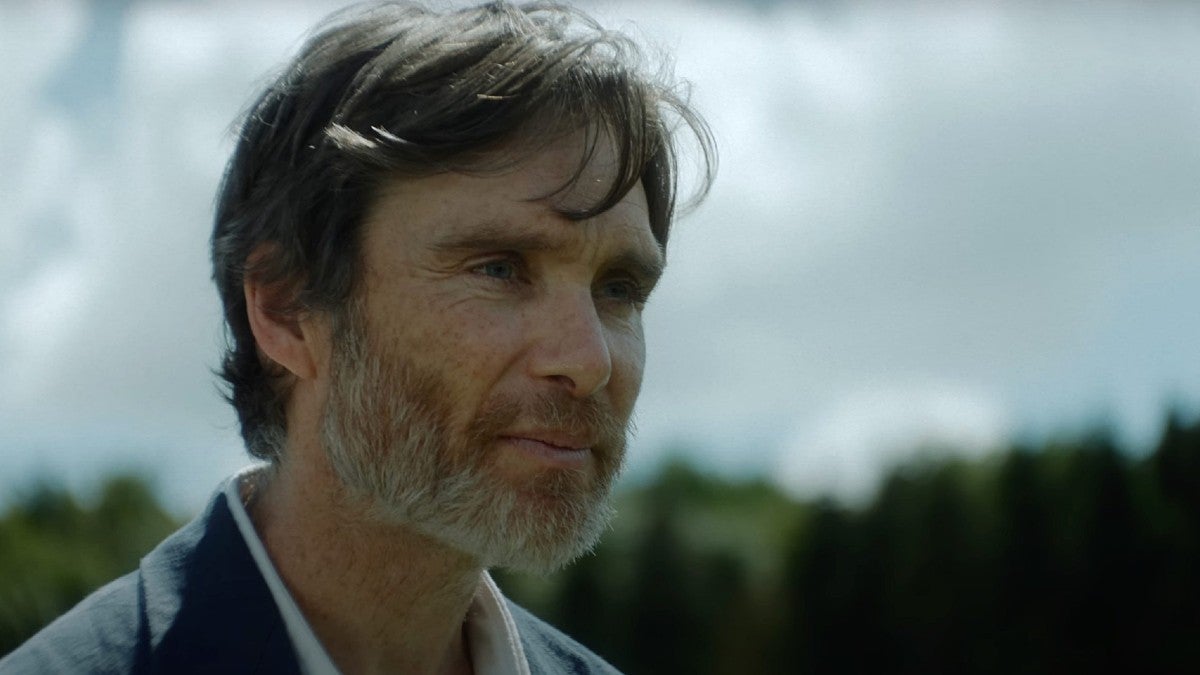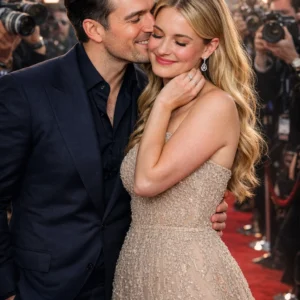In the relentless churn of Netflix’s content colossus, where prestige dramas duke it out for awards-season glory amid a sea of true-crime slop and sitcom slush, a raw, unflinching import from the British Isles has clawed its way to the forefront like a desperate student scrambling for a passing grade. Steve, the 2025 psychological drama reimagining Max Porter’s 2023 novella Shy, arrives not with fanfare but with the quiet ferocity of a headmaster’s whispered warning: “This place breaks you, or you break it first.” Directed by the masterful Tim Mielants – the Belgian auteur whose visceral lens turned Peaky Blinders into a gritty fever dream and Small Things Like These into a soul-searing elegy – the film clocks in at a taut 92 minutes, unfolding over one cataclysmic day in the mid-1990s at Stanton Wood, a crumbling reform school for society’s forsaken boys. Starring Oscar-winner Cillian Murphy in a performance that’s already being buzzed as his most shattering since Oppenheimer, Steve isn’t just a character study; it’s a seismic indictment of a system that chews up the vulnerable and spits out the wreckage. Premiering to rapturous reviews at the Toronto International Film Festival’s Platform Prize section on September 16, 2025, before a limited theatrical rollout on September 19 and a global Netflix drop on October 3, this isn’t popcorn fodder – it’s a gut-punch wrapped in woolen despair, leaving audiences shaken, stirred, and silently screaming for reform. As critics from The Guardian to The Hollywood Reporter proclaim Murphy’s portrayal of the titular headteacher “awards-worthy” and “unforgettably ferocious,” Steve emerges as the fall’s must-see gut-check: a film that doesn’t just tell a story, but burrows into your bones and demands you feel the fracture.
Official Trailer:
Cillian Murphy, the Irish enigma whose piercing gaze has haunted screens from 28 Days Later‘s zombie apocalypse to Oppenheimer‘s atomic anguish, anchors Steve with a tour de force that peels back the layers of a man perpetually on the precipice. At 49, Murphy – fresh off his Best Actor Oscar for embodying J. Robert Oppenheimer’s tortured genius – inhabits Steve with a physicality that’s equal parts coiled spring and crumbling facade. Bearded and beleaguered, his eyes hollowed by sleepless vigils and his frame taut with unspoken tremors, Murphy’s Steve is the beleaguered beating heart of Stanton Wood: a headteacher whose evangelical zeal for “saving” his charges masks a maelstrom of personal demons. Secretly battling substance abuse – furtive swigs from a flask hidden in his desk drawer, pills palmed during parent-teacher feuds – Steve is a powder keg of passion and peril, his voice cracking from booming authority to broken pleas in the span of a single scene. Murphy’s collaboration with Mielants marks their third outing, a creative alchemy honed on Peaky Blinders Season 3’s razor-wire tension and Small Things Like These‘s quiet cataclysm. Here, he doesn’t just act; he erodes – his Steve a mosaic of micro-expressions: a jaw-clench at a trustee’s sneer, fingers drumming like Morse code for “mayday” during a staff meltdown. Critics are unanimous: Variety calls it “Murphy’s most uninhibited raw nerve,” while Collider deems him “mesmerizing,” a performance that “holds the chaos together even as it tears him apart.” For Murphy, who also produces via his Big Things Films banner, Steve is personal poetry – a role he chased after devouring Porter’s proof copy, declaring it “broke my heart” in a TIFF Q&A. It’s the kind of work that doesn’t seek sympathy; it seizes it, leaving you haunted by the what-ifs of a life unraveled thread by thread.
Flanking Murphy’s fractured fulcrum is a British ensemble of estimable heavy-hitters, each etching indelible portraits into the film’s fevered fabric. Tracey Ullman, the comedy chameleon whose satirical skewers have sliced through The Tracey Ullman Show and Curb Your Enthusiasm, delivers a devastating pivot as the school’s no-nonsense deputy head, Ms. Hargreaves. Ullman’s Hargreaves is a whirlwind of weary wisdom and whip-smart wit, her acid-tongued takedowns of bureaucratic buffoons masking a maternal ferocity that crumbles in private confessions to Steve. Fresh from her Broadway triumph in The Actor, Ullman infuses the role with a lived-in laceration, her scenes with Murphy crackling like a storm front – a late-film confrontation in the rain-lashed quad where her “We’ve all got our poisons, love” lands like a lifeline laced with lightning. Jay Lycurgo, the rising star whose brooding intensity ignited The Batman‘s iteration of Tim Drake and simmered in Supacell‘s supernatural streets, embodies Shy with a vulnerability that verges on volcanic. As the film’s fragile fulcrum – a 15-year-old firebrand teetering between self-destruction and salvation – Lycurgo’s Shy is a storm of suppressed sobs and sudden savagery, his wide eyes windows to a world of whispered traumas. Lycurgo, drawing from his own experiences with neurodiversity, brings an authenticity that’s achingly alive, his chemistry with Murphy a paternal push-pull that pulses through every frame.

The supporting scaffold is no less stellar, a rogues’ gallery of grit and grace that grounds Steve‘s soaring stakes. Simbi Ajikawo (aka Little Simz), the Grammy-nominated rapper whose bars blaze with unflinching fury in Top Boy and Venom: Let There Be Carnage, storms in as the school’s overworked counselor, Ms. Patel. Ajikawo’s Patel is a beacon of beleaguered empathy, her sessions with Shy unraveling like therapy tapes on fast-forward, her Cockney cadence cutting through the chaos with compassionate commands. Emily Watson, the luminous force behind Breaking the Waves and Dune: Prophecy, materializes as Steve’s estranged ex-wife, Laura, in hallucinatory flashbacks that flicker like faulty fluorescents. Watson’s Laura is a ghost of grievances past – elegant yet eviscerated, her scenes laced with the lingering ache of abandoned anniversaries and unspoken addictions. Roger Allam, the stage titan of Les Misérables and The Thick of It, slithers through as the oily local MP, Sir Reginald, whose photo-op platitudes mask a Machiavellian agenda to shutter the school for “efficiency.” Allam’s Reginald is a masterclass in smarmy superiority, his booming baritone booming with bogus benevolence. Douggie McMeekin (The Capture) and Youssef Kerkour (The Crown) round out the staff as beleaguered teachers – McMeekin’s idealistic newbie cracking under classroom carnage, Kerkour’s veteran enforcer nursing bruises from both boys and budget cuts. Tut Nyuot, the Sudanese-British newcomer whose raw debut in The Swimmers hinted at breakout brilliance, shines as one of Shy’s dorm-mates, a silent sentinel whose subtle solidarity steals scenes. Together, this tapestry of talents transforms Steve from solo showcase to symphonic scream, each performance a thread in Mielants’ meticulously woven web of woe.
The narrative nerve center of Steve throbs with the relentless rhythm of a single, sun-scorched day in 1996 – a pressure-cooker plot that compresses a lifetime of longing and loss into 92 blistering minutes. Adapted by Porter himself from his novella Shy, the screenplay is a stream-of-consciousness symphony, shifting seamlessly between Steve’s spiraling psyche and Shy’s shadowed soul. The film opens in medias res: Dawn’s gray light filters through grimy windows as Steve stumbles into Stanton Wood’s assembly hall, his tie askew and breath ragged from a clandestine snort in the staff loo. The school – a squat, Soviet-era slab of concrete ringed by razor wire and rhododendrons – houses a dozen “last-chance lads,” boys battered by broken homes, behavioral black holes, and a society that scorns them as statistics. Steve’s morning mantra? “Order from chaos” – a rallying cry barked to bleary-eyed teens as he navigates the minefield of muster: Shy slamming lockers in sullen silence, a fistfight erupting over a stolen Walkman, whispers of weekend “escapes” rippling like contraband cigs.
Thread one unfurls Steve’s Sisyphean siege against systemic sabotage: A dawn email from the Department of Education heralds an unannounced inspection, the school’s funding teetering on the trustees’ tipped scales. Enter Sir Reginald, Allam’s MP in a pinstripe suit slicker than spilled oil, whose “fact-finding” visit is a farce of forced smiles and furtive filibusters – promising “modernization” that spells shuttering for Steve’s sanctuary. Murphy’s Steve parries with passionate pleas, his voice veering from velvet entreaty to volcanic eruption as he recounts the school’s slim successes: Shy’s tentative trust in poetry slams, a dorm-mate’s first stutter-free soliloquy. Interwoven are Steve’s private purgatories: Flashbacks to marital meltdowns with Watson’s Laura, where his “one more drink” devolves into dawn departures; a clandestine call to his dealer, the line crackling with coded cravings. Mielants’ direction – handheld havoc in hallways, slow-motion shards of shattered glass during a cafeteria melee – amplifies the anarchy, Ben Salisbury and Geoff Barrow’s score a throbbing bassline of distorted guitars and distant dirges that mirrors Steve’s mounting migraine.
Parallel pulses Shy’s subplot, a poignant portrait of pubescent peril that humanizes the “delinquents” without didactic drivel. Lycurgo’s Shy is the school’s silent storm – a teen with a rap sheet of runaways and rages, his notebook a confessional crammed with cryptic verses (“Shy as a shadow, sharp as a shank”). His arc arcs through alliances and antagonisms: A midnight confab with Nyuot’s character over contraband crisps, trading tales of absent dads; a brutal brawl with a bully that leaves Steve stitching wounds in the sick bay, their bond blooming in bloodied banter. Ajikawo’s Patel probes Shy’s psyche in a rain-lashed therapy tent, unearthing echoes of abuse that resonate with Steve’s own suppressed scars. Ullman’s Hargreaves hovers as the hardened heart, her “tough love” lectures laced with lore from decades in the trenches, while McMeekin and Kerkour’s teachers provide poignant punctuation – a naive idealist’s first breakdown, a cynic’s quiet camaraderie over contraband coffee.
Thematically, Steve is a scalpel to the soul of institutional inertia: A mid-90s microcosm of Britain’s battered underbelly, where Thatcherite thrift guts youth services, leaving lads like Shy to fend in foxholes of neglect. Porter’s prose – poetic yet punchy – pulses through the dialogue, lines like Steve’s “We’re not fixing fractures; we’re forging shields” landing like litanies. Mielants, wielding Robert Heyvaert’s cinematography like a wand, conjures a visual vernacular of vertigo: Claustrophobic close-ups on Murphy’s quivering quill as he pens a desperate grant appeal, wide-angle woes of the quad where boys brawl under brooding skies. It’s social realism with symphonic swells – harrowing yet humane, chaotic yet cathartic – a film that doesn’t preach reform but paints its paucity in visceral vermilion.
But it’s the plot twists – those narrative grenades that grenade the gut – that catapult Steve from solid drama to seismic shock, twists that twist the knife of empathy into something existential. Without eviscerating the epiphany, consider the mid-reel rupture: As Steve’s inspection spirals into a standoff – Sir Reginald’s delegation demanding “evidence of efficacy” amid a dorm-room donnybrook – a leaked memo surfaces, courtesy of Kerkour’s whistleblowing warden. It reveals not bureaucratic bungling, but deliberate sabotage: The MP’s office, in cahoots with property developers, has greenlit a casino complex on the school’s scrubland, the “reform” rhetoric a smokescreen for sleight-of-hand sales. Steve’s sanctuary isn’t failing; it’s fodder for fiscal feasts, his boys mere collateral in a corrupt calculus. This revelation doesn’t just incense; it incinerates – Murphy’s meltdown a maelstrom of desk-flipping fury and flask-fueled flight, his screams echoing through empty corridors like a siren’s wail.
The finale’s ferocity? A flash-flood of fate that floods the frame with unforeseen fury. Shy’s simmering subplot surges to the surface: In a quad-side showdown, the teen – cornered by cops called by the trustees – confesses not rebellion, but revelation. His “crimes”? Fabricated frames from a foster father turned fixer for the MP, Shy’s “violence” a veiled cry against violations long veiled. But the bombshell buries deepest: Steve, in a blackout binge the night prior, wasn’t just swigging solace – he was scripting sabotage, anonymously tipping the developers with doctored docs to “save” the school by scuttling the sale. His heroism? A hallucination born of hubris, the memo’s leak his own unwitting undoing. As sirens wail and Shy shields Steve from the storm – “You’re not the villain, sir; you’re the veil we hide behind” – the film fades on a fractured frame: Steve, shackled in shadow, whispering to the wind, “Who saves the saviors?” It’s a twist that transmutes tragedy to terror, flipping the savior script to expose the savior’s sins, leaving viewers not just shaken, but shattered – questioning if redemption is real, or merely the residue of ruin.
Steve isn’t cinema as comfort; it’s confrontation in 35mm, a film that festers like a fresh bruise, demanding dissection long after the credits crawl. With a 77% Rotten Tomatoes fresh rating – critics caroling “Murphy’s magnificent maelstrom” (The Guardian) and “a heartbreak engine that hums with humanity” (IndieWire) – it’s poised for podium pushes at the Globes and beyond. Netflix, ever the opportunist, teases TIFF triumph with trailer teases that tally 10 million views, positioning Steve as the streamer’s social-issue salve amid Squid Game sequels. For Murphy, it’s a mantle that multiplies his mystique – from atomic architect to academic alchemist, his Steve a symphony of suffering that sings of the system’s sins. In a year of sequels and spectacles, Steve stands sentinel: A stark reminder that the broken don’t just need fixing; they need feeling. Stream it, seethe with it, and emerge altered – because in the end, Steve doesn’t just stun; he scars, a cinematic scar that society can’t afford to ignore.





